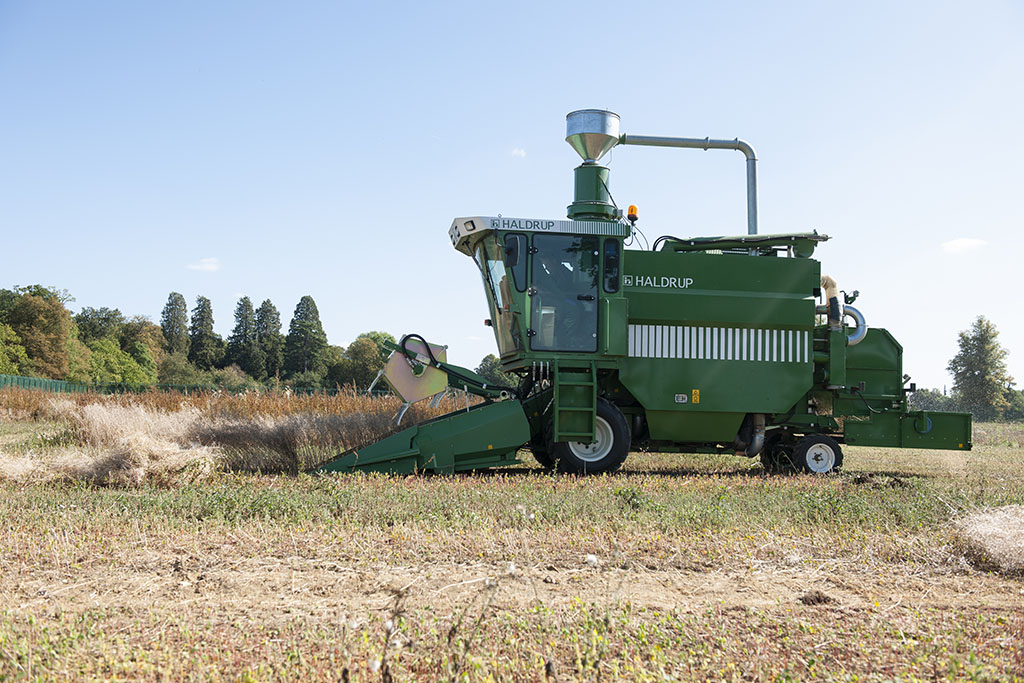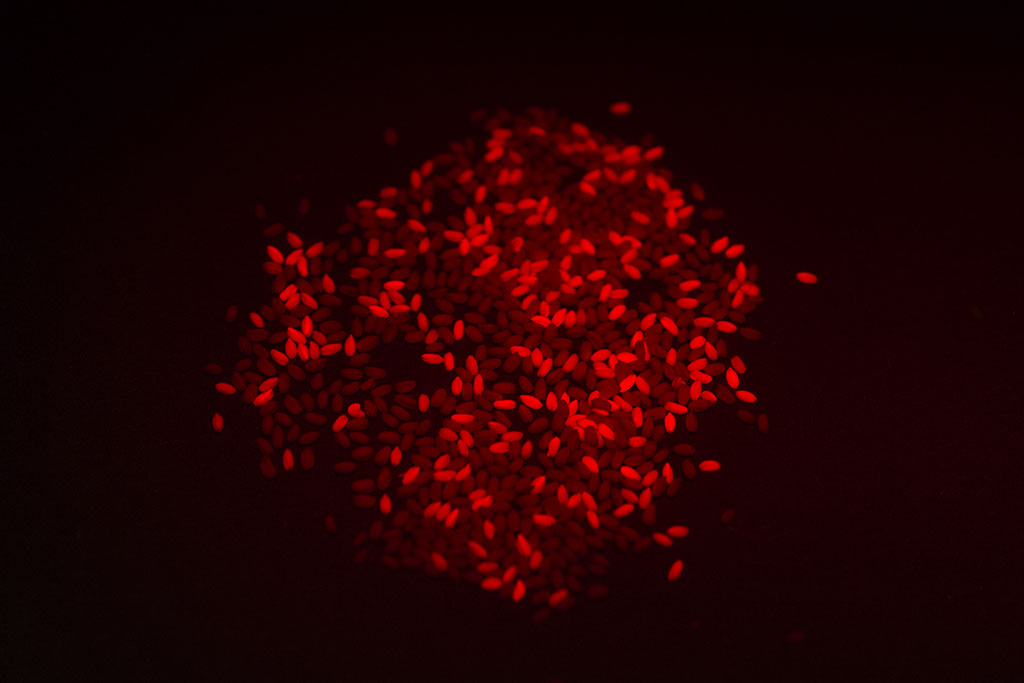The big picture: using wildflower strips for pest control
2020 delivered a bumper crop of our genetically modified camelina plants, further reinforcing the potential of this technology to become a major sustainable source of omega 3 fatty acids.

The 2020 harvest of GM camelina was particularly promising
Genetic research targeting a variety of plant traits is one of the Rothamsted’s core strengths. The Harpenden campus has unparalleled expertise and experience in delivering successful in situ trials of genetically modified crops.
Supported by BBSRC, Rothamsted has been at the forefront of GM field research for over two decades - vital for the translation of fundamental studies into useful agricultural products. By bio-engineering plants in this way, we can not only help create more sustainable ways to produce food, but also explore the viability of novel plant chemistries that can boost nutritional value and deliver useful products for industry.
Rothamsted’s GM/GE Field trials: Facts & Figures
2021 will usher in a new chapter in the public discussions around the regulation, utility and potential impact of cultivating increasing quantities of GM and GE crops in the UK.
Rothamsted has been an open and constructive contributor to this debate for many years and we look forward to playing a leading role in the dialogue to come.

GM Camelina trials in aquaculture (BBSRC video, YouTube)